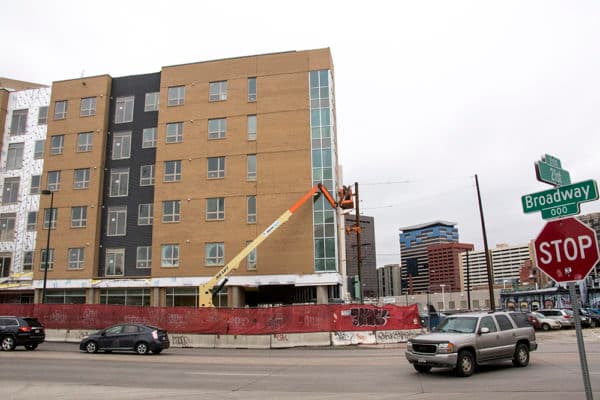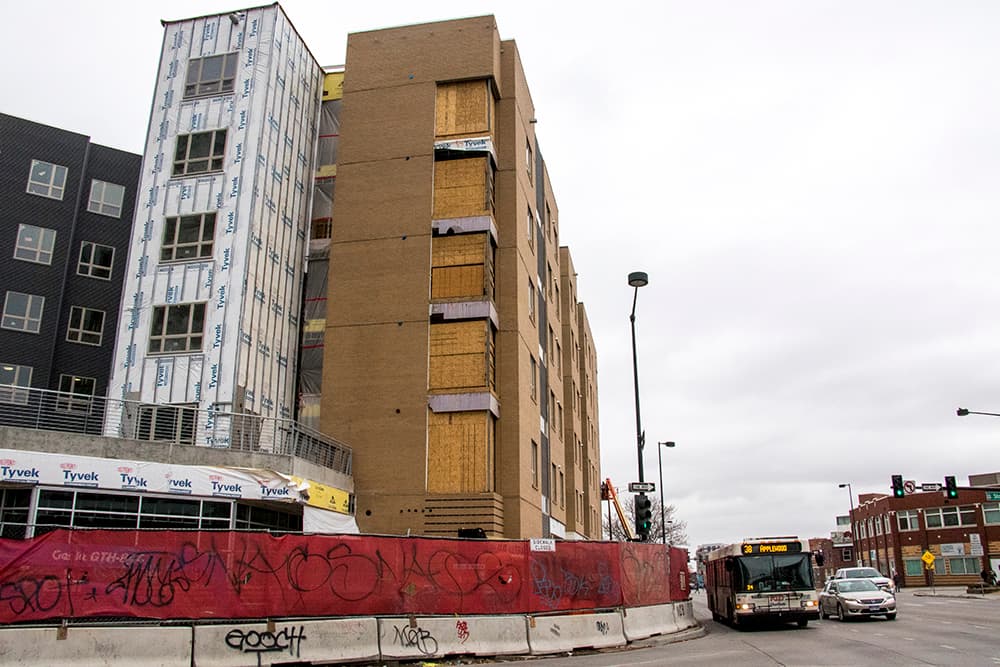
Update: The version of the bill that came out of conference preserves the private activity bonds and lessens the impact on financing for affordable housing.
The Republican tax plan could have a major impact on private funding for affordable housing projects, and Colorado would be one of the most affected states, according to an analysis by Novogradac & Co., an accounting firm that specializes in real estate.
The market for low-income tax credits has already been significantly affected by the widespread expectation that President Donald Trump will lower the corporate tax rate. If the corporate tax rate is lower, investors aren't as interested in buying tax credits to reduce their liability.
As The Denver Post reported earlier this year, some affordable housing projects were facing funding gaps as large as $1 million. Emily Cadik, director of public policy for Enterprise Community Partners, a national nonprofit involved in financing affordable housing and advocating for housing policy, said tax credits started to lose value "almost immediately" after the election in November 2016.
"Even without anything being signed into law, we've experienced a 20 percent decrease in pricing since the election," Cadik said.
The House version of the tax bill contains an additional change that will hit affordable housing developers hard, the end of tax credits associated with multifamily affordable housing bonds.
There are two types of tax credits. Low-income housing tax credits, known as LIHTC, are assigned to the states by the federal government based on a number of factors. Developers apply to the state and get allotted a certain number of tax credits, which they then sell to investors, who get to reduce their taxes based on their purchase of the credits. The other type of tax credit is associated with multifamily housing bonds, a type of private bond. People who purchase the bonds get a tax credit.
This type of tax credit is just as important as LIHTC in paying for affordable housing, Cadik said. Tax credits associated with private bonds accounted for about 40 percent of the housing built with tax credits nationwide, and according to the National Council of State Housing Agencies, 62 percent of housing credit units built in Colorado in 2015 were financed with multifamily bonds. That's 1,204 out of 1,944 units.
Cadik said there is no good replacement source for housing bonds. If that program goes away, that money goes away, and it has a major impact on the ability of developers to do affordable housing.
Republicans are under a lot of pressure to pass a tax bill after failing to repeal the Affordable Care Act earlier this year, and the president has identified tax reform as one of his most important initiatives. The ostensible goal of tax reform is to lower taxes on businesses to help them be competitive and simplify the tax code for everyone, which means all sorts of deductions and credits are going way, not just those affecting affordable housing.
Rich people pay much less in this plan, while the effect on low- and middle-income Americans is more complicated. Many will pay about the same for now, but some provisions expire in five years, setting the stage for future increases. By 2023, only 40 percent of Americans would pay less, and 22 percent would pay more, according to the Joint Committee on Taxation.
A bill has passed the House and a different version has passed a Senate committee. The full Senate will take up the bill after the Thanksgiving recess, and its future is uncertain. Whatever the Senate passes will have to be reconciled with the House version, so there's still a lot of opportunity to change the final outcome.
Both the House and Senate versions of the tax bill lower the corporate tax rate from 35 percent to 20 percent. Novogradac estimates that change alone could result in 300,000 fewer affordable housing units being built nationwide over the next decade.
Both the House and the Senate versions of the tax bill keep the LIHTC program. Cadik said advocates have pushed hard to explain the value of that program to elected officials of both parties, often bringing them to see the housing units and communities built with the money generated by it, and there is broad bipartisan support for a separate bill that would expand it.
But the tax credits associated with multifamily housing bonds go away in the House bill.
If that element of the tax bill is passed into law, 700,000 fewer affordable housing units would be build over the next decade. Colorado alone could lose more than 27,000 potential units, Novogradic predicted. That makes Colorado the ninth most effected state in the country.
At the same time, Housing and Urban Development money for affordable housing development is also expected to decrease.
Some Denver officials have expressed concerns that the city's $15 million a year affordable housing fund won't go as far as it should because the city will end up replacing money that's lost due to changes at the federal level instead of increasing the amount available for housing.
"Tax credits are the primary tool for getting the private sector to invest in affordable housing," Cadik said. "It's not economically feasible to develop housing and charge rents that are affordable to low-income people without some sort of subsidy."












